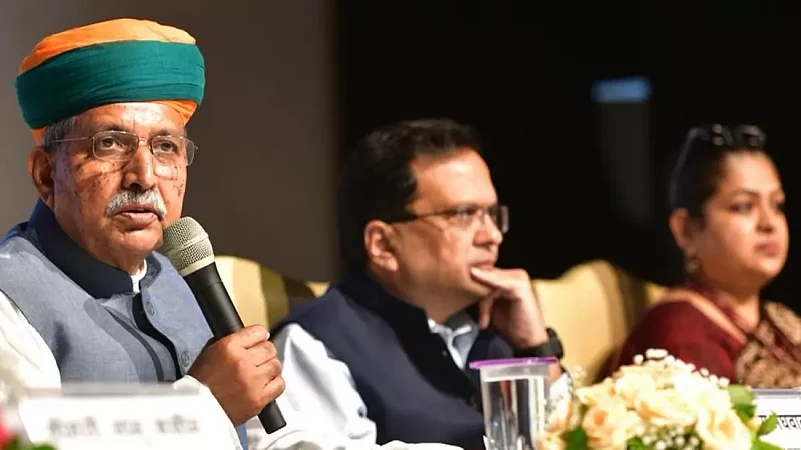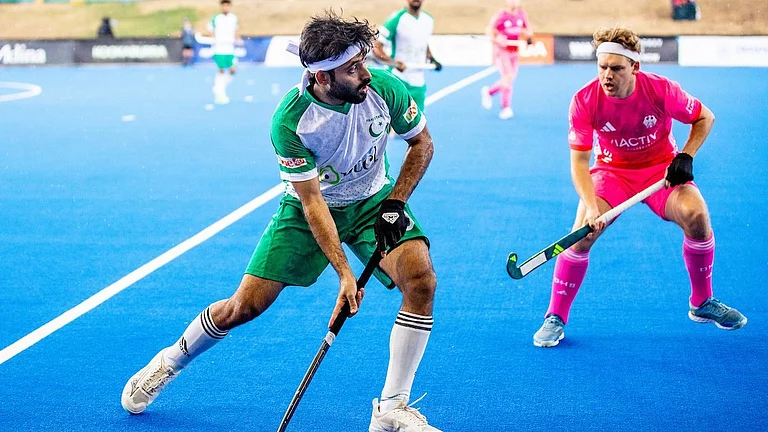Can the library and museum space interact? Can the libraries be reimagined beyond its drab and dull nature? In a unique effort to synchronise the spaces of library and museum and to make it more accessible to the common audience, Ministry of Culture, Government of India is going to organise Festival of Library, 2023 on August 5-6 at Pragati Maidan, New Delhi.
“It will be a space of synchronisation- of museum and library, of digital and physical- of old and the young,” says the Minister of State for Law and Justice, Parliamentary Affairs and Culture Arjun Ram Meghwal.
One of the major objectives of the festival lies in encouraging the balanced interaction between digital and physical. In the latest budget, the finance minister Nirmal Sitharaman had recommended creation of digital libraries in thousands of schools across the country. “So, will the digital space actually take over the physicality of library? The Ministry of Culture wants a balanced interaction and synchronization between the two,” says Govind Mohan, Secretary, Ministry of Culture.
While referring to the popularity of digital library in current times, Meghwal says, “Even after that the importance of physical library will always remain same.” He also appreciates the mobile libraries that are bringing it close to the people’s home. “The library festival will also create a community drawing room for people to read and engage with it,” notes Mohan.
The Minister also envisages the museum of library- a space where every day object can find recognition and significance. “As the Prime Minister said there is always scope of looking at the household objects as matter of significance. From grandfather’s watch to a book- anything and everything can be part of museum and library. So, such interaction is necessary,” he adds.
The library festival is expecting the participations from libraries, academics, universities, bureaucrats, literary persons and people from different fields across the world. Inaugurated by the President Draupadi Murmu, the innovative effort will witness launch of a crowd-sourced Directory of Libraries, besides signing of a Tripartite MoU between three historic libraries- Khuda Baksh Oriental Library, Patna, Rampur Raza Library, Rampur and Maulana Abul Kalam Azad Arabic Persian Research Institute, Tonk. Notably, it will kickstart the celebration of 250 years of Rampur Raza Library.
The President will also inaugurate a book of cursive writings comprising of 22 vernacular languages recognized in the constitution. “This is an effort to make people aware of the lingual diversity of the country. The book will help people to know each other’s manuscripts,” says Mohan. The focus on the manuscript and tribal languages could also be found in the separate workshop sessions on manuscripts.
Another interesting aspect of the festival will be its exhibitions. There will be 10 exhibitions showcasing cartography, calligraphy, cursive writings, and tribal fonts and scripts. There will also be sections for the Oral/Archival histories. “Different universities like Indraprastha University, IIM and others will come and show their historical records,” says Mugdha Sinha, Joint Secretary, Ministry of Culture.
Talking about the sessions and invitees, Sinha adds how it is an effort to bring in the literary festivals from ‘hotels’ to the common people. “There will be founders of known literary festivals to discuss the library as a drawing room of community,” says Sinha.
People from the community libraries and innovative book stores will also join the discussions on how to engage with and connect to the common citizens.
Addressing the concerns of the marginalized people across the country, the library festival will give face uplift to community and mobile libraries that have been working for the underprivileged people for years, notes Sinha.
However, the focus on ancient India and its glory is constant in the library festival as well. An ancient encyclopedia will be exhibited that, Sinha claims, contains the earliest forms of surgical references that are still being used in modern medicine.
Apart from the workshops and exhibitions, it will introduce a special ranking system for libraries across India, “further promoting excellence and innovation”, reads the press note.
Soon, the government will also launch ‘One Nation, One Subscription’ format for the citizens who will be able to access all the libraries in the country through a unique credential. “However, to implement that, we need the supports of states as library is a state subject,” says Sinha.
Library festival with its objective to provide an accessible space to the citizens also works a bridge between past and the present- just like museums. In the words of Meghwal, “Libraries preserve manuscripts and bridges the gaps between history and the limitless future.”



























